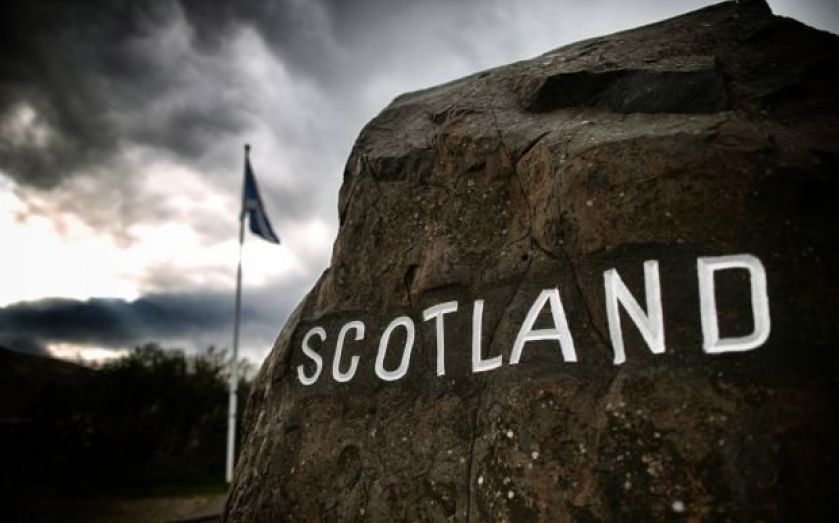Staying silent about the real price of Scottish independence is a cop out – City Matters

This week will see the most crucial poll in the United Kingdom for centuries – a poll on whether the UK will stay as it is or Scotland will choose to leave the Union. The business world has led with the view that “this is a matter for the Scottish people”. But this is also a cop out. Business must make its voice heard – not in the sense of expressing a view on how people should vote, but rather to ensure that, as far as possible, voters are informed of the consequences of their actions.
Individuals make complex and significant decisions all the time, such as making a lifestyle change or giving up highly-paid jobs to do something completely different, like working for charity or travelling the world. But they do so with full knowledge of the financial consequences of their decision. If the Scottish electorate is prepared to pay a price to be independent then so be it, but it is important they know what that price is. And here, business cannot be silent.
In the event of a Yes vote, there are many uncertainties. What will the currency be, will Scotland be in the EU, will there be significant changes in tax or regulation? Should Scotland vote for independence, these matters will be settled – in time. And this is the problem.
The “time” could be only months, but other matters may not be settled for years. Meanwhile, businesses cannot stop the clock as they make decisions on where to locate, and whether to expand or contract in a particular area.
Only this week, Amazon announced its intention to move its operations from Slough to Shoreditch. The more certainty there is, the easier the decision. Global financial institutions currently looking to establish a new UK office may have a shortlist of London or Glasgow – both excellent locations. But with the possibility that Scotland may not remain in the UK, or indeed the EU, there is an immediate question mark about business tax and regulation. It may be stating the obvious, but the lack of certainty would count against Scotland – it may not be decisive, but in practice most location decisions are finely balanced. London becomes the safer choice.
Of course, Scotland could thrive as a small independent nation – there are smaller wealthy countries in the EU. But that is not the issue. The question is whether the huge disruption and uncertainty that would be created by a vote for independence is a price worth paying – and there should be no doubt that the uncertainty and disruption would be huge. And that price would not just be on Scotland; government and businesses throughout the UK that operate in Scotland would have to devote substantial resources to dealing with the consequences of the split. Yes this would provide jobs – but not the right sort.
May the Scottish electorate vote wisely.